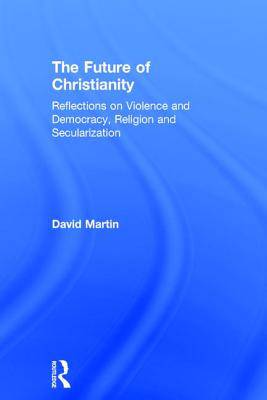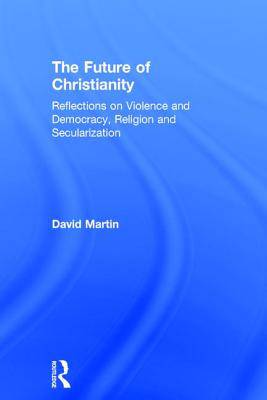
Bedankt voor het vertrouwen het afgelopen jaar! Om jou te bedanken bieden we GRATIS verzending (in België) aan op alles gedurende de hele maand januari.
- Afhalen na 1 uur in een winkel met voorraad
- In januari gratis thuislevering in België
- Ruim aanbod met 7 miljoen producten
Bedankt voor het vertrouwen het afgelopen jaar! Om jou te bedanken bieden we GRATIS verzending (in België) aan op alles gedurende de hele maand januari.
- Afhalen na 1 uur in een winkel met voorraad
- In januari gratis thuislevering in België
- Ruim aanbod met 7 miljoen producten
Zoeken
The Future of Christianity
Reflections on Violence and Democracy, Religion and Secularization
David Martin
Hardcover | Engels
€ 305,45
+ 610 punten
Uitvoering
Omschrijving
This book offers a mature assessment of themes preoccupying David Martin over some fifty years, complementing his book On Secularization. Deploying secularisation as an omnibus word bringing many dimensions into play, Martin argues that the boundaries of the concept of secularisation must not be redefined simply to cover aberrant cases, as when the focus was more on America as an exception rather than on Europe as an exception to the 'furiously religious' character of the rest of the world. Particular themes of focus include the dialectic of Christianity and secularization, the relation of Christianity to multiple enlightenments and modes of modernity, the enigmas of East Germany and Eastern Europe, and the rise of the transnational religious voluntary association, including Pentecostalism, as that feeds into vast religious changes in the developing world. Doubts are cast on the idea that religion has ever been privatised and has lately reentered the public realm. The rest of the book deals with the relation of the Christian repertoire to the nexus of religion and politics, including democracy and violence and sharply criticises polemical assertions of a special relation of religion to violence, and explores the contributions of 'cognitive science' to the debate
Specificaties
Betrokkenen
- Auteur(s):
- Uitgeverij:
Inhoud
- Aantal bladzijden:
- 240
- Taal:
- Engels
Eigenschappen
- Productcode (EAN):
- 9781409406587
- Verschijningsdatum:
- 28/01/2011
- Uitvoering:
- Hardcover
- Formaat:
- Genaaid
- Afmetingen:
- 156 mm x 234 mm
- Gewicht:
- 517 g

Alleen bij Standaard Boekhandel
+ 610 punten op je klantenkaart van Standaard Boekhandel
Beoordelingen
We publiceren alleen reviews die voldoen aan de voorwaarden voor reviews. Bekijk onze voorwaarden voor reviews.









